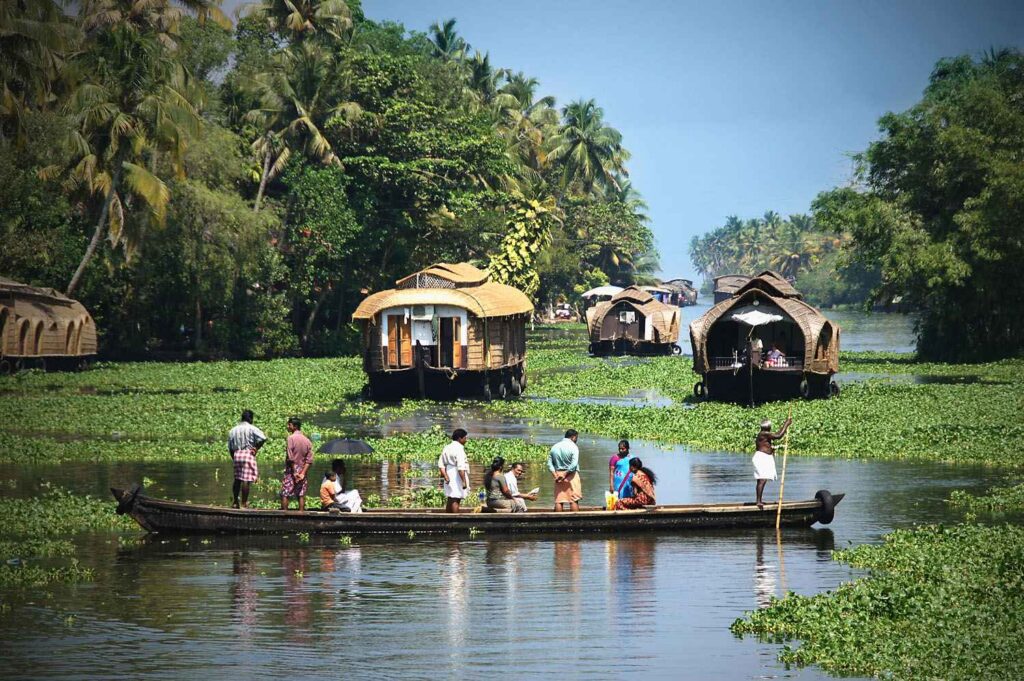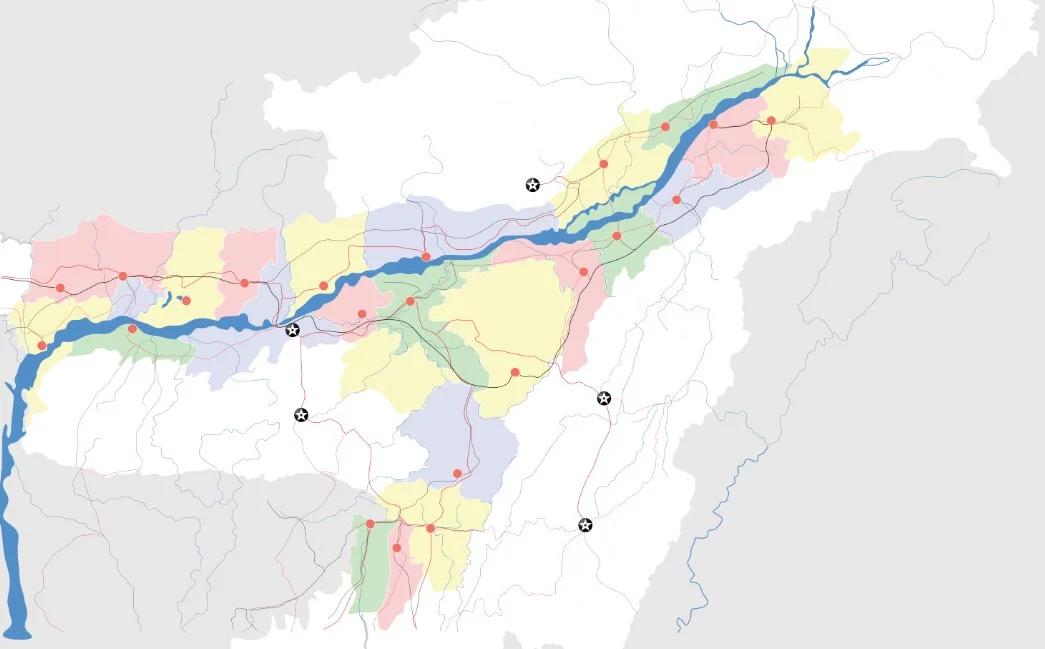Introduction
India, a land of diverse cultures, languages, and traditions, boasts a rich educational landscape. Among its states, Kerala stands out as a shining beacon of literacy and learning. Known for its lush green landscapes, backwaters, and vibrant culture, Kerala has consistently topped the charts when it comes to education. Let’s explore why Kerala deserves this prestigious title.”The Most Educated State of India”.
A Brief History of Kerala
Ancient Roots
Kerala’s history is deeply intertwined with its geography, culture, and maritime connections. Here are some key points:
- Geographical Advantage: Kerala, located on the southwestern coast of India, has been a hub for trade and cultural exchange since ancient times. Its lush green landscapes, abundant rainfall, and fertile soil made it an attractive settlement.
- Early Civilization: Archaeological evidence suggests that Kerala was inhabited as early as the Neolithic period (around 3000 BCE). The region had trade links with Mesopotamia, Egypt, and the Roman Empire.
- Chera Dynasty: The Chera dynasty, one of the earliest ruling dynasties in Kerala, left a significant impact. They controlled trade routes and maintained diplomatic relations with foreign powers.
Influence of Religion and Culture
- Buddhism and Jainism: Kerala embraced Buddhism and Jainism during the Mauryan and Gupta periods. Ancient rock-cut caves and inscriptions bear witness to their presence.
- Arrival of Christianity: Kerala has a rich Christian heritage. According to tradition, St. Thomas the Apostle arrived in Kerala in the 1st century CE, establishing Christian communities along the Malabar Coast.
- Syncretic Traditions: Kerala’s culture is a blend of Hindu, Christian, and Islamic influences. Temples, churches, and mosques coexist harmoniously.
Colonial Era
- European Traders: Portuguese, Dutch, and British traders arrived in Kerala seeking spices (especially pepper) and other commodities. Forts like Fort Kochi and Fort St. Angelo were established.
- Cultural Renaissance: The 19th century witnessed a cultural renaissance in Kerala. Social reformers like Sree Narayana Guru and Chattampi Swamikal advocated for education, social equality, and religious tolerance.
Historical Context

Kerala’s educational journey is deeply rooted in its past. Here are some key points:
- Ancient Legacy: Kerala’s history dates back to ancient times. It was a hub for trade, with links to Mesopotamia, Egypt, and the Roman Empire. The Chera dynasty ruled here, controlling trade routes and fostering cultural exchange.
- Religious Influence: Kerala embraced Buddhism and Jainism, leaving behind rock-cut caves and inscriptions. St. Thomas the Apostle’s arrival in the 1st century CE marked the beginning of Christianity in the region.
- Colonial Encounters: European traders—Portuguese, Dutch, and British—arrived seeking spices. Forts like Fort Kochi and Fort St. Angelo were established. This period shaped Kerala’s cultural landscape.
- Cultural Renaissance: In the 19th century, social reformers like Sree Narayana Guru and Chattampi Swamikal advocated for education, social equality, and religious tolerance.
- Modern Kerala: The state was formed in 1956 by merging princely states. Land reforms, literacy campaigns, and healthcare initiatives contributed to Kerala’s educational excellence.
In summary, Kerala’s history is a blend of ancient civilizations, colonial encounters, and progressive reforms—a testament to its commitment to education and enlightenment.
Key Factors Contributing to Kerala’s Educational Excellence
- High Literacy Rate: Kerala boasts an impressive literacy rate of 96.2%. This achievement is a result of sustained efforts by the government, NGOs, and community-driven initiatives. Literacy campaigns, adult education programs, and awareness drives have played a crucial role.
- Focus on Primary Education: Kerala recognized the importance of a strong foundation. The state prioritized primary education, ensuring that children receive quality education from an early age. Robust school infrastructure, well-trained teachers, and accessible schools contribute significantly.
- Gender Parity: Kerala has successfully bridged the gender gap in education. Both men and women have equal access to educational opportunities. This inclusivity has led to overall societal progress and empowerment.
- Quality Higher Education: Kerala’s universities and colleges offer diverse courses across various disciplines. Institutions like the University of Kerala, Cochin University of Science and Technology, and Indian Institute of Management Kozhikode are renowned nationally and globally. The emphasis on quality education ensures that graduates are well-prepared for their careers.
- Health-Education Nexus: Kerala understands the interplay between health and education. The state’s focus on healthcare, family planning, and preventive measures directly impacts education. Healthy citizens are more likely to pursue education and contribute to the state’s development.
Challenges Faced
- Emigration: A significant number of Keralites work abroad, leading to a temporary brain drain. While their remittances contribute to the state’s economy, retaining talent within Kerala remains a challenge.
- Unemployment: High literacy doesn’t always translate to ample employment opportunities within the state. The mismatch between skills and available jobs poses a persistent issue.
- Environmental Concerns: Kerala’s development must strike a delicate balance between economic growth and environmental conservation. Rapid urbanization, deforestation, and pollution threaten the state’s natural beauty and biodiversity.
In summary, Kerala grapples with these challenges as it continues its educational journey toward excellence.
Let’s see what comes after Kerala- The Most Educated State
| Rank | State | Literacy | Male | Female |
|---|---|---|---|---|
| 1 | Kerala | 94.00 | 96.11 | 92.07 |
| 2 | Lakshadweep | 91.85 | 95.56 | 87.95 |
| 3 | Mizoram | 91.33 | 93.35 | 89.27 |
| 4 | Goa | 88.70 | 92.65 | 84.66 |
| 5 | Tripura | 87.22 | 91.53 | 82.73 |
| 6 | Daman and Diu | 87.10 | 91.54 | 79.55 |
| 7 | Andaman and Nicobar Islands | 86.63 | 90.27 | 82.43 |
| 8 | Delhi | 86.21 | 90.94 | 80.76 |
| 9 | Chandigarh | 86.05 | 89.99 | 81.19 |
| 10 | Puducherry | 85.85 | 91.26 | 80.67 |
Conclusion
In conclusion, Kerala’s status as the most educated state in India is a result of deliberate and sustained efforts to prioritize education and holistic development. The state’s model demonstrates that with the right policies and community support, significant progress in education and socio-economic development can be achieved. Kerala’s journey serves as an inspiration and a blueprint for other states aiming to enhance their educational outcomes and overall well-being.
FAQ’s
Q: Why is Kerala considered the most educated state in India?
A: Kerala is considered the most educated state in India due to its highest literacy rate, which is a result of its robust public education system, progressive social policies, and strong community involvement in educational initiatives.
Q: What is Kerala’s current literacy rate?
A: Kerala’s literacy rate is approximately 96.2%, the highest in India, according to the latest data.
Q: What role does the government play in Kerala’s education success?
A: The government plays a crucial role by allocating significant resources to education, implementing progressive policies, maintaining high standards in public schools, and ensuring widespread availability of educational facilities.
Q: How can other states in India learn from Kerala’s educational model?
A: Other states can learn from Kerala by adopting inclusive educational policies, ensuring adequate funding for public education, engaging communities in educational initiatives, and prioritizing health and social welfare to create a conducive learning environment.












